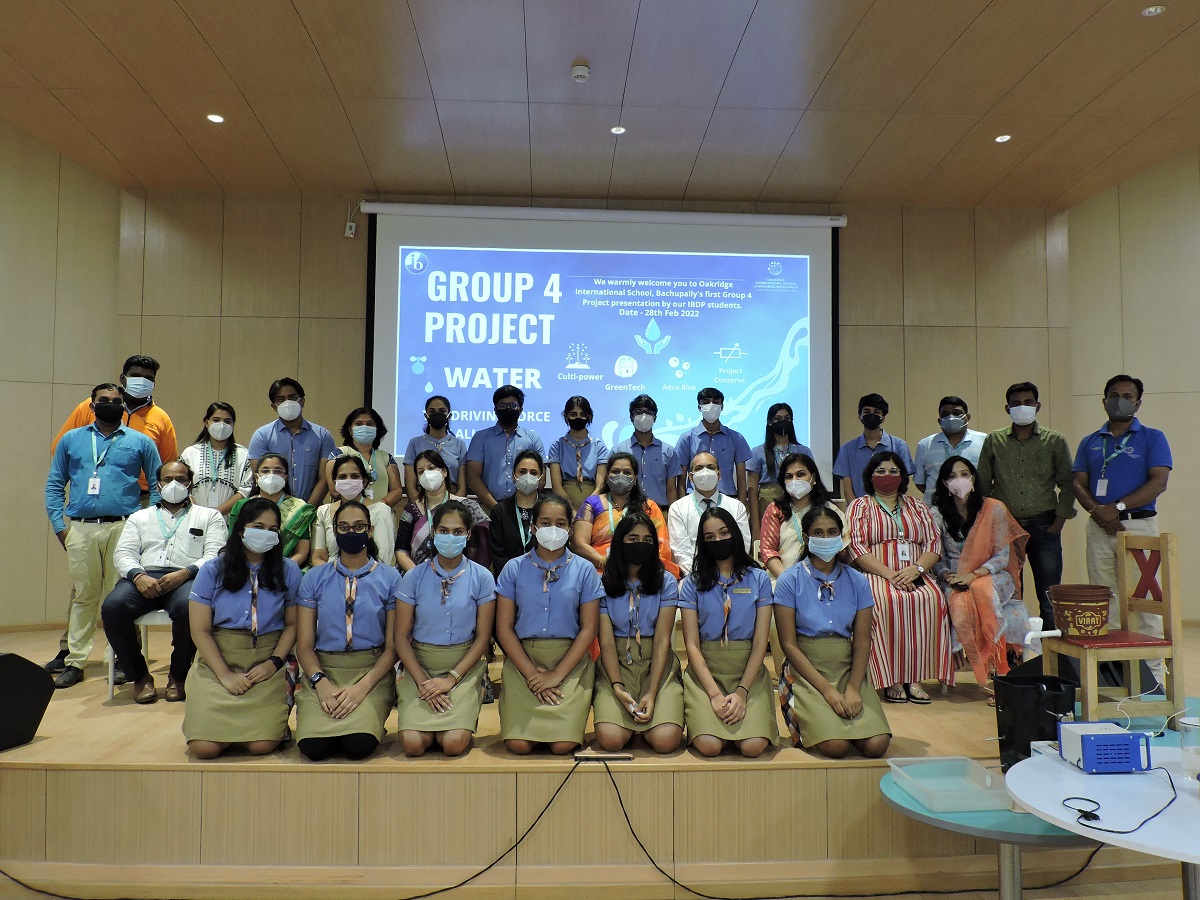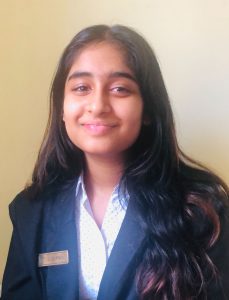Student’s view – The Group 4 Scientific Explorations
- 28 March 2022

What Help Conserve, Electrolyse, Transform And Irrigate With Water.
“Everything is theoretically impossible until it is done.” – Robert A. Heinlein
For something to come alive, especially in science, the first step is curiosity and investigation. The next step would be planning. This includes considering resources and availability and practicality to a certain extent. Action is next, where we perform certain tests and experiments to make observations. Finally, there’s evaluation. This step is where we look at the similarities and differences between the hypothesis and the final product.
As a student of Oakridge International School, Bachupally for over 5 years, it is an incredible opportunity to be a part of the pioneer batch of the International Baccalaureate Diploma Programme. The ib has 6 subject groups that we students choose from. It is a mandatory part of the course to pick a subject from each of these groups, to encourage interrelated learning and establish interests in all types of subjects and career paths. Group 4 comprises all the natural and experimental sciences, including biology, chemistry, physics, and computer science.
The group 4 project is designed to bring students from various group 4 subjects together to analyze a similar scientific topic or problem. So there’s someone from biology, chemistry, physics, and computer science in each group. The project allows us to appreciate science and technology’s environmental, social, and ethical implications. It also helps us understand the limitations of the scientific study in general. To make the project cohesive, there is a commonly given theme, which, this time, was water.
There were 4 groups in total and all of them had completely different approaches to the idea of water and sustainability.
Group 1 – Project Conserve.
Have you ever witnessed an overflow at your house because of not knowing when to turn off the water motor? Group 1, consisting of Shanyu, Aneesh, Bhavna, and Pradeepth, is called Project Conserve. It helps tell the percentage of water remaining in the tank in liters, using the ammeter connected to a model which is shown through the machine learning software that they have created. It also shows the quantity of water remaining in liters on the HTML interface, for easier and wider access by people. By using Project Conserve, we essentially save water, avoiding extensive wastage of it.
Group 2 – GreenTech.
GreenTech is a research project conducted to find ways to safely produce hydrogen from water and sustainably use it. Sharvari, Aditi, Pavan, and Shashika had the objective of replicating some of the mechanisms through their model, that can extract and make use of hydrogen as a fuel, as well as to raise awareness about how it might be incredibly environmentally friendly and eliminate harmful emissions that can have a huge negative impact on the human body. They had 2 steps, step 1 was extracting hydrogen from water using electrolysis, and then using this to produce energy for cars and other purposes.
Their main aim as a group was to promote a clean and safe hydrogen-fuel economy.
Group 3 – AquaBlob.
This was the group I was a part of. A problem of the past and a consistently growing one in the present is the plastic problem. Neha, Harinidhi, Anika, and I conducted enough research for us to determine that 73% of all beach litter in the world is simply plastic. The AquaBlob is a remaking of one of the solutions to the plastic problem, called the OOHO water blobs, but with further exploration to make it more efficient. It is a bitesize blob made of sodium alginate solution and calcium chloride solution, both of which are safe to consume and tasteless. These are made to replace the use of plastic water bottles and promote more biodegradable and safe alternatives in the daily usage and intake of water.
Group 4 – Culti-Power.
The last group centralized their idea around the topic of hydropower through drip irrigation. According to their research, 70% of the world’s water is utilized in irrigation and 40% of that is lost due to runoff and evaporation from poor irrigation systems. Rohan, Yasheeta, Aman, and Ananya based their model on the principle of the law of conservation of energy wherein, the mechanical energy generated by the revolutions of the turbine is converted into electrical energy by the motor to then power the bulb. Their project is based on how individuals can conserve their energy and save water, by using this system.
Overall, as students, each one of us had something essential to learn from this project, and it wasn’t necessarily just relating to the sciences. We learned collaboration and adaptability. We could think about how incredibly interrelated everything in our real world is.
The theme of water could sound broad, but that’s only a representation of the endless possibilities and ideas we as students could come up with.

By our Oakridger
Student : Veda,
Standard – 11.